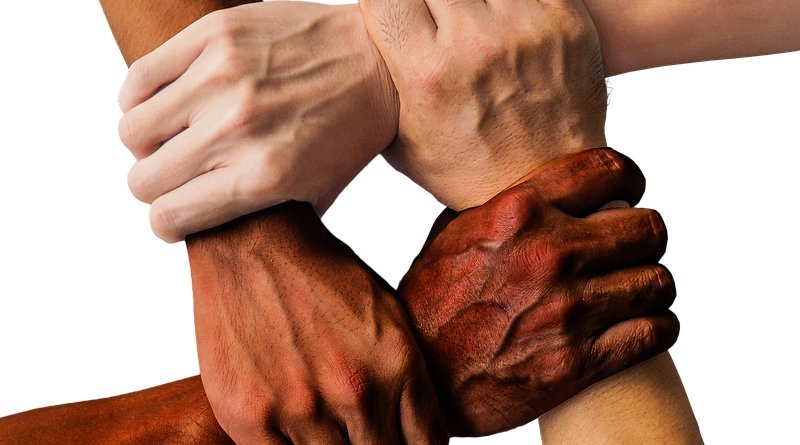16 Things Individuals Can Do To Help Bring America Together – OpEd
By FEE
By Lawrence W. Reed
Americans are angry and divided—perhaps more than at any time since the Civil War. Holding strong opinions, especially in defense of truth, is no vice. But failing to bridge our differences and resolve them peacefully is no virtue either. Here’s my “to do” list if you want to be part of the solution instead of the problem.
1. Choose someone you disagree with and start a dialogue. Make friends even if neither of you changes your mind.
2. Find common ground, avoid epithets, and presume goodwill on the part of others unless and until their actions suggest otherwise.
3. Embrace America as an imperfect, unfinished product—and one whose future depends on a respect for those principles that made it largely free and exceptional in the first place. No country is without flaws, and few countries in world history have accomplished as much for life and liberty as America.
4. Think twice before using political connections and influence to get something you can’t secure voluntarily from others in the marketplace. Cronyism diminishes respect for both you and for the free enterprise system it corrupts.
5. Judge every individual by “the content of his character” and the merit of his actions, not by the group to which he was assigned by birth, origin, faith, color, or politics.
6. Elevate the importance of personal character in your life. No society can flourish if it denigrates virtues such as honesty, humility, patience, responsibility, tolerance, courage, gratitude, self-discipline, and respect for the lives, rights, property, and choices of others.
7. Choose liberty over power, persuasion over force. Find ways in which you can leave the world not only a better place, but a freer one as well, for life without liberty is both unthinkable and unlivable.
8. Live your life as though politics is but a corner of it, not consumed by it. Recognize the incalculable value of intact families, vibrant and voluntary associations, community engagement, loving relationships, and institutions created and sustained outside the divisive realm of politics.
9. Ask yourself every day, “Am I good enough for liberty?” Then dedicate yourself to self-improvement if you can’t honestly answer “yes.” Reforming the world starts with reforming oneself.
10. Defend the free speech of all people. If you catch yourself attempting to intimidate, shut down, or frighten others into submission, shake it off before the impulse turns you into an antisocial monster. “Cancel” nobody except those who insist on canceling others.
11. Revere truth and the honest search for it. Never let truth be obscured or destroyed by claims that it doesn’t matter or that it is nothing more than a subjective whim of the moment. There is no such thing as “his truth” or “her truth,” only “the truth.”
12. Seek diversity of opinion. Minds that try to stigmatize or close the minds of others, or that pretend that color, sex, and religion are all that matter, are enemies of the “diversity” that matters most.
13. Love peace more than you love force, conflict, compulsion, and intolerance. Work toward a society in which individuals choose to do right because they want to, not because they’re forced to.
14. Reject nihilism, cynicism, and pessimism. People of goodwill and character can shape the future for the better. It’s never too soon or too late to start.
15. Learn from history; don’t rewrite it. Lessons from the past can make us better people in the future. Don’t twist your underwear into a knot over an old statue. Never allow the poison of “presentism” to corrupt your perspective.
16. Celebrate the “uncommon.” It is the uncommon to whom we owe the greatest debt—those who speak truth to power, invent and innovate, turn failure into success, and add value to society. No one should encourage a child, for example, to aspire to nothing more than “commonness.” Respect and encourage the exceptional.
The former U.S. Senator from Maine, George Mitchell, once said, “I believe there’s no such thing as a conflict that can’t be ended. They’re created and sustained by human beings. They can be ended by human beings. No matter how ancient the conflict, no matter how hateful, no matter how hurtful, peace can prevail.”
I hope he’s right. But in any event, no peace of any kind can prevail so long as we nurture conflict within and between ourselves. No peace of any kind can long be imposed from the outside in. It must begin on the inside, as a matter of conscience, one conscientious individual at a time, and then grow outward into a course of action.
These sixteen suggestions constitute a course of action for each reader to consider.
- About the author: Lawrence W. Reed is FEE’s President Emeritus, having previously served for nearly 11 years as FEE’s president (2008-2019). He is also FEE’s Humphreys Family Senior Fellow and Ron Manners Global Ambassador for Liberty. His Facebook page is here and his personal website is lawrencewreed.com.
- Source: This article was published by FEE

